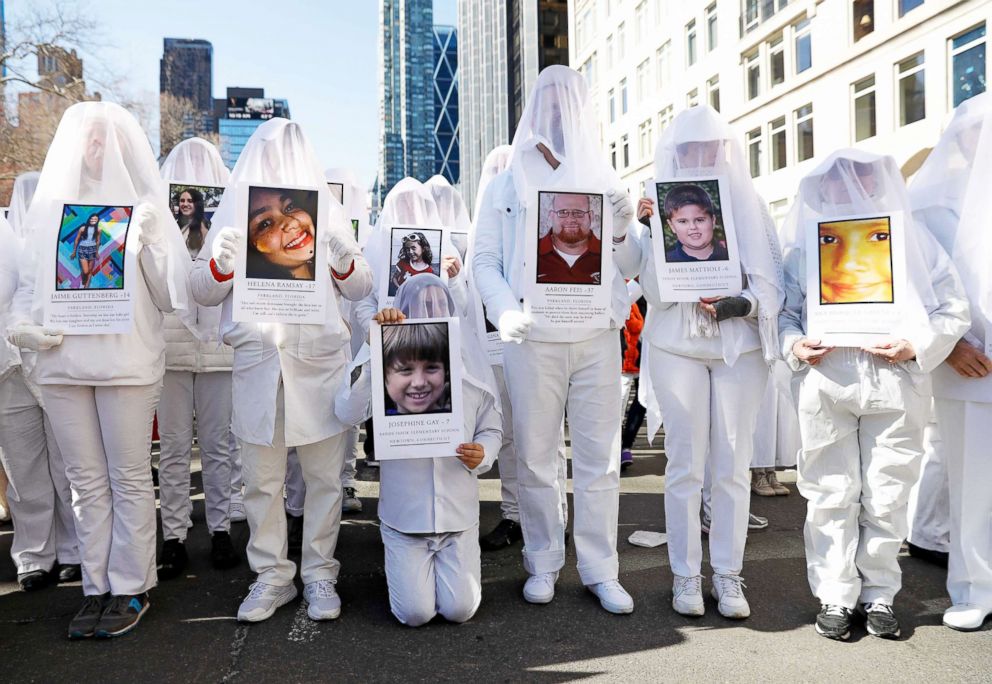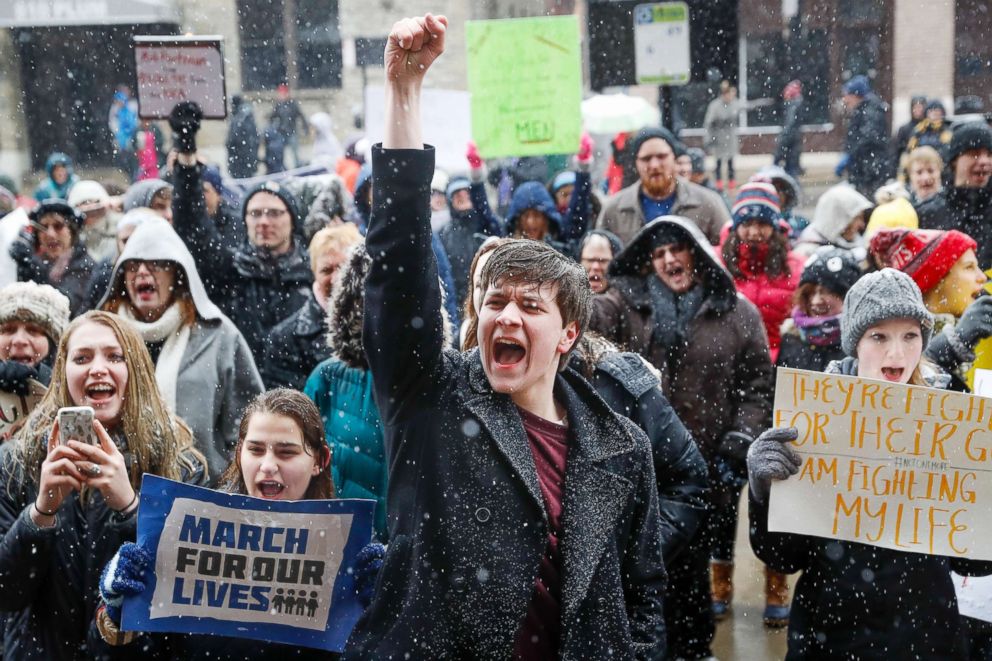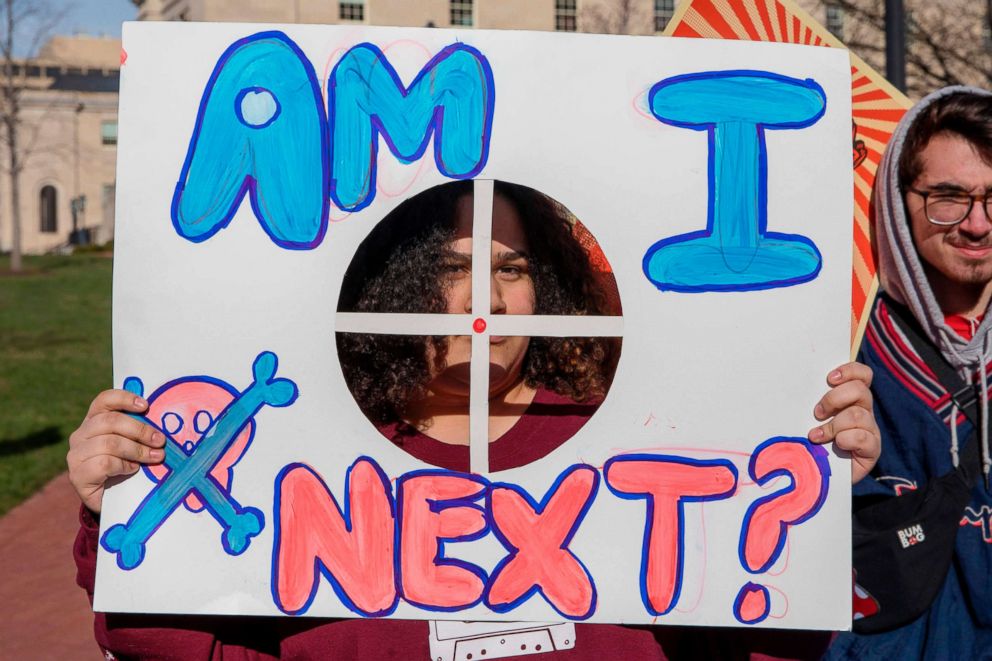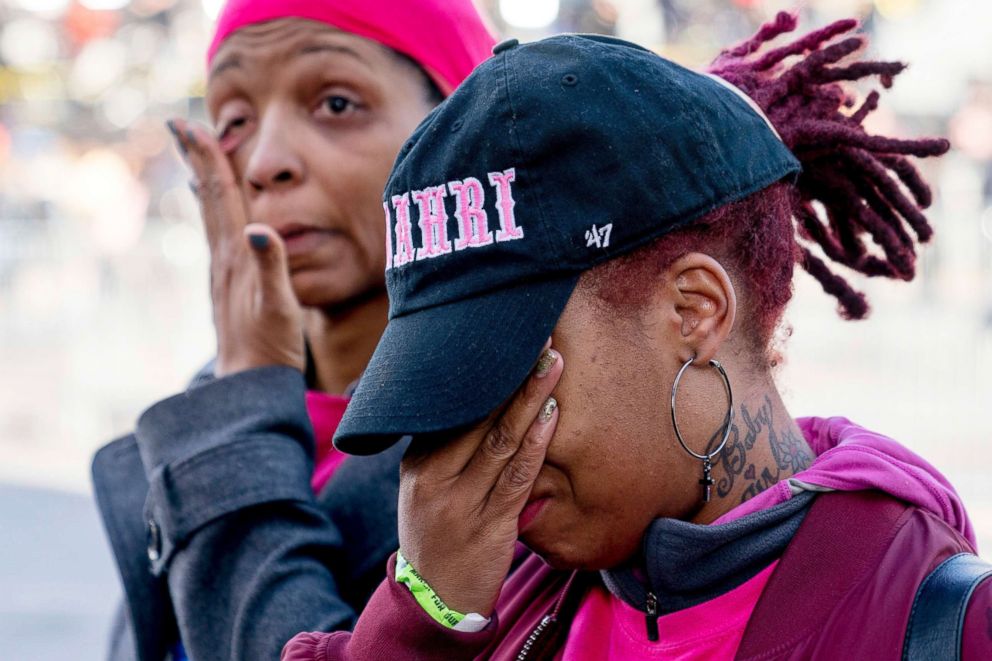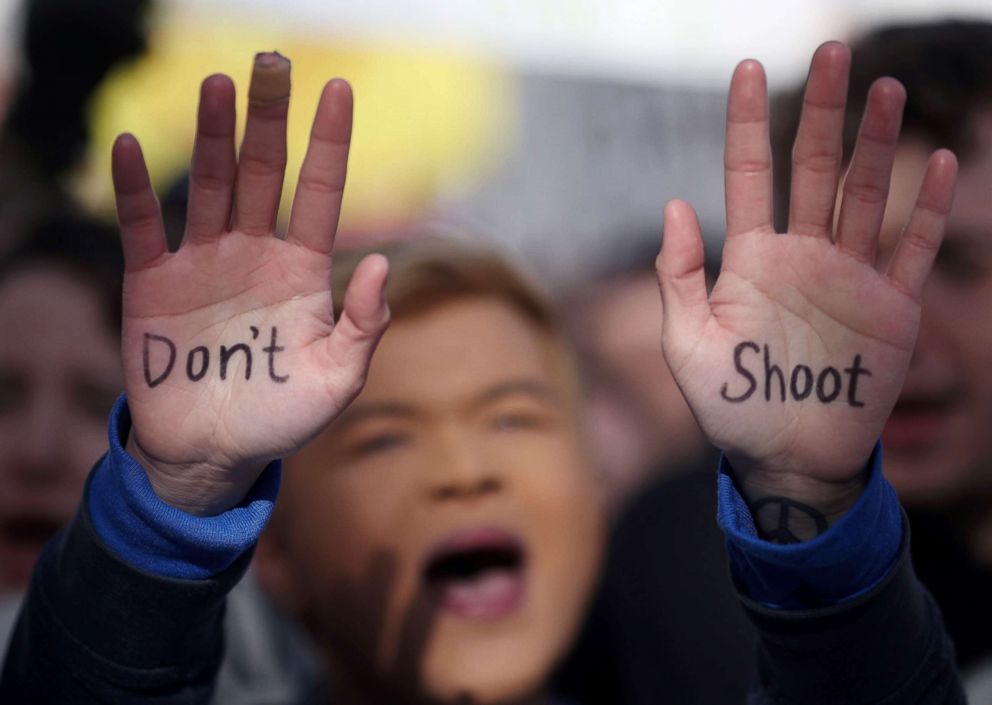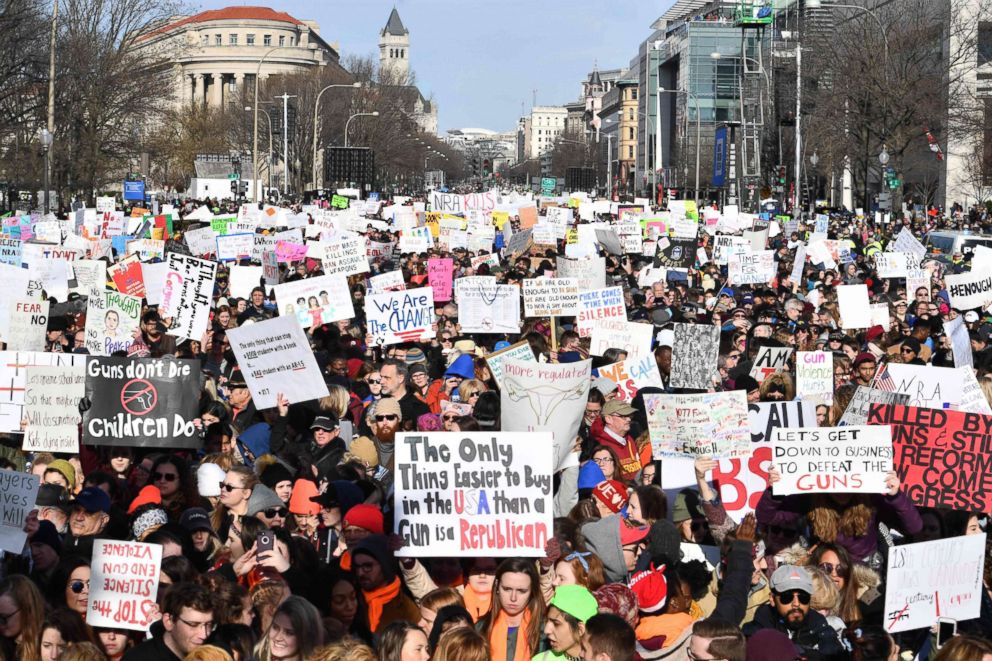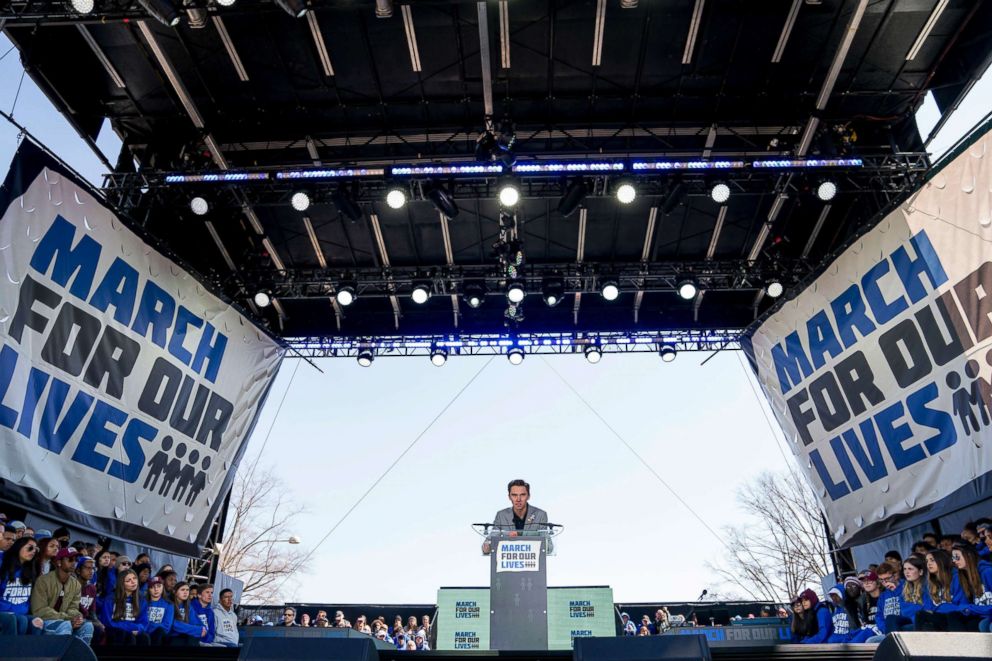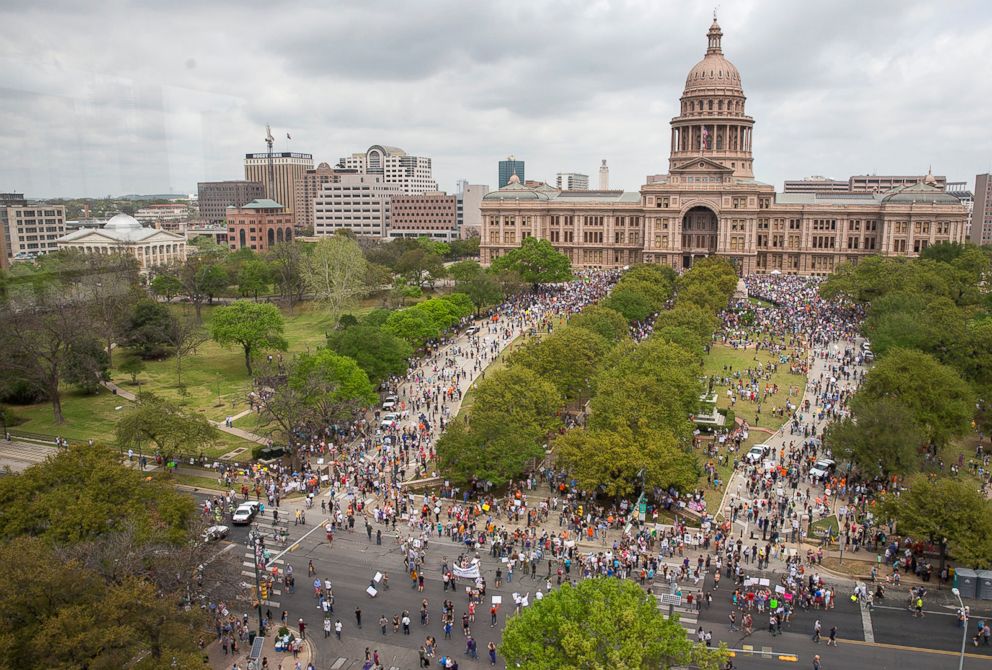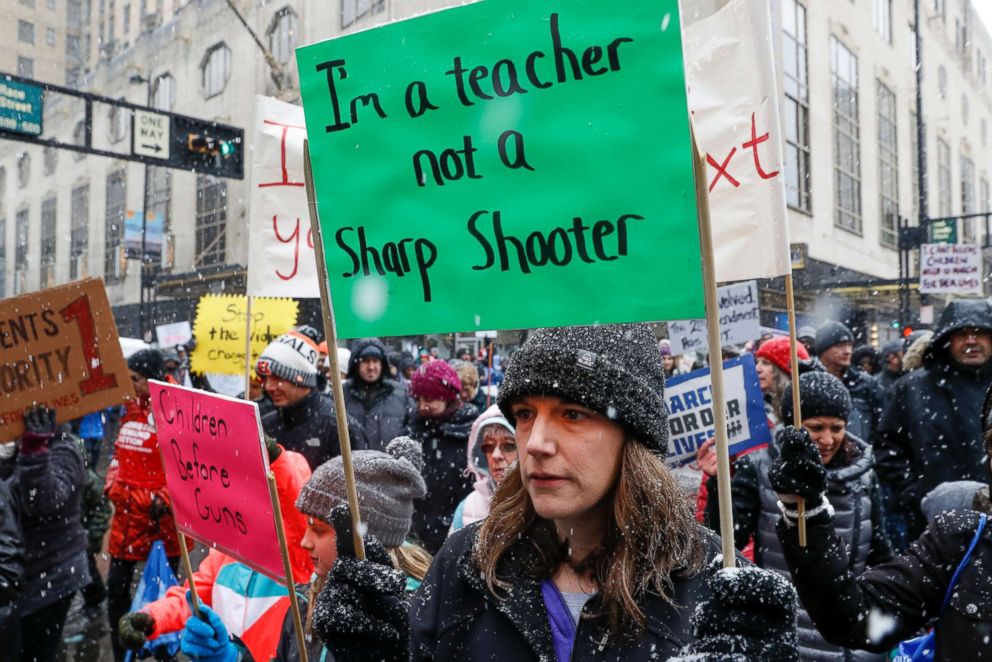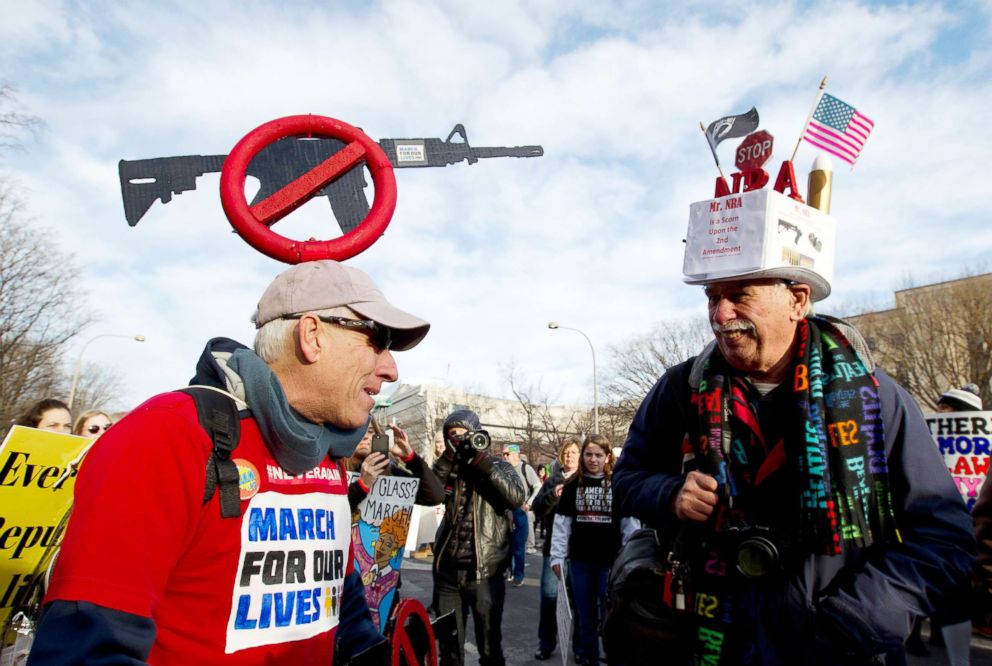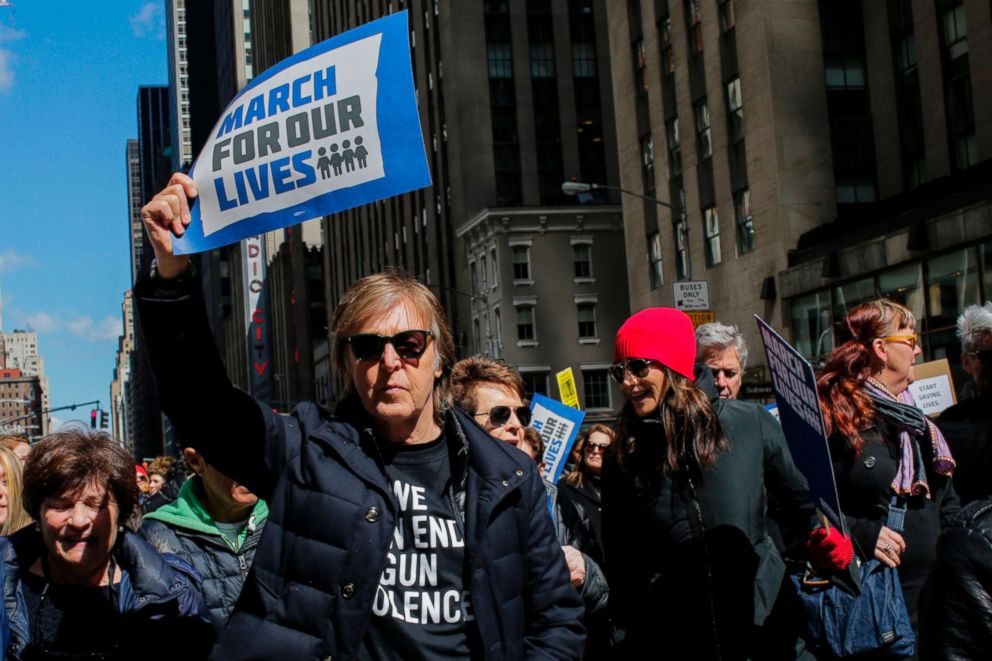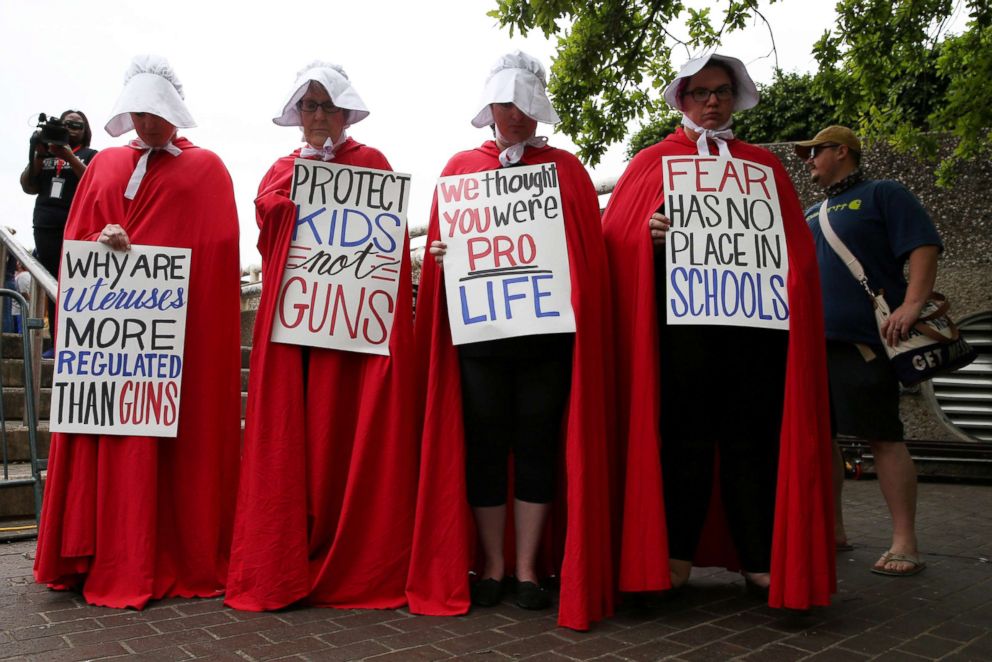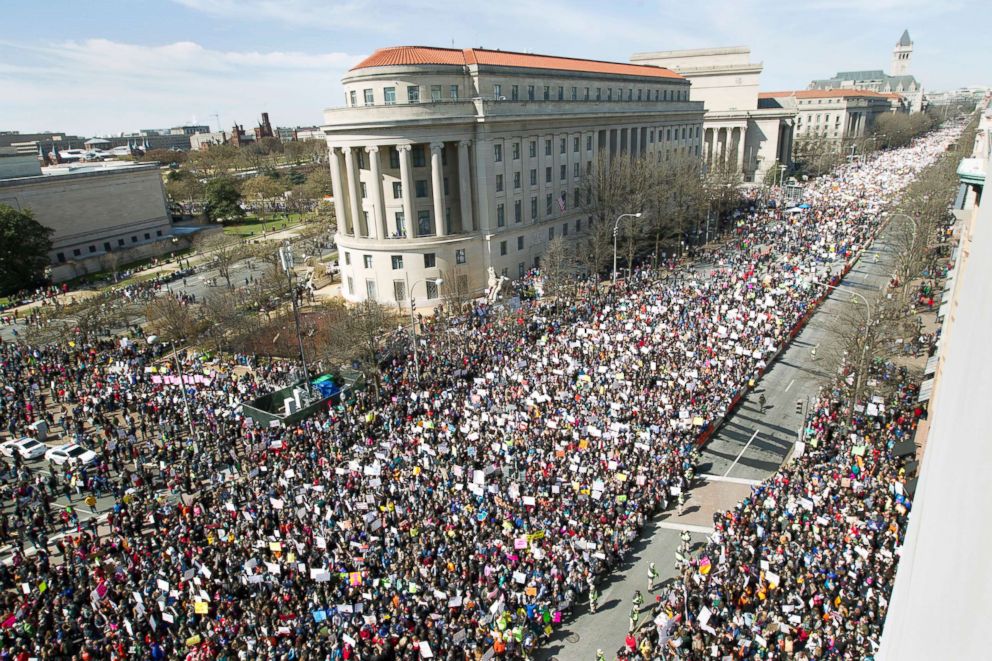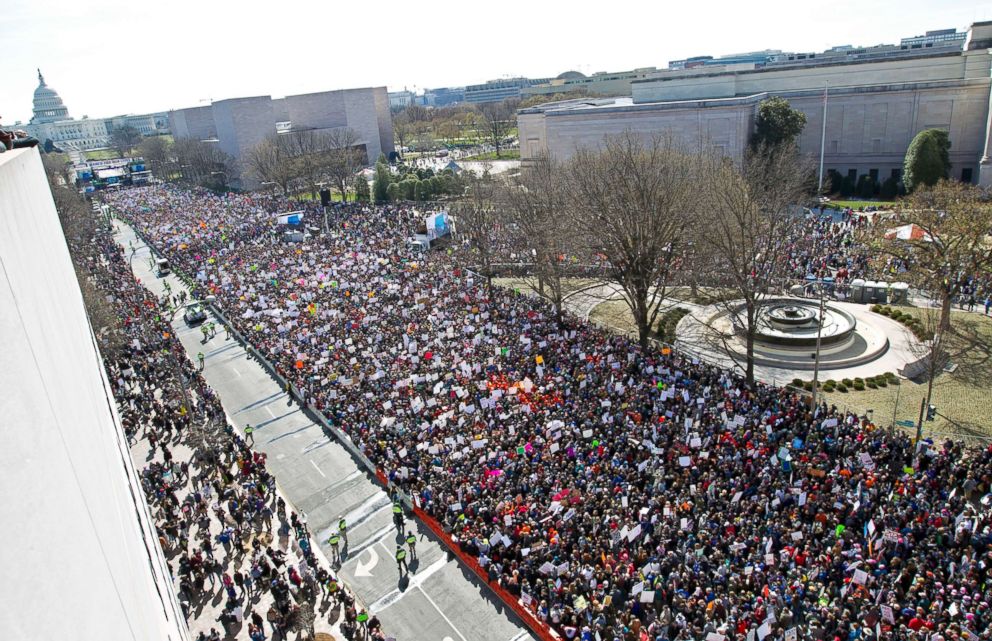ANALYSIS: March for Our Lives could define politics for new generation
It could define politics for a rising generation.
It could define politics for a rising generation.
This weekend’s March for Our Lives is expected to draw hundreds of thousands of students and their families to Washington and cities across the country, including some teenagers who have already become almost as famous as the A-list entertainers who will also be in attendance.
If the march delivers on its promise, it could jolt a political process whose calcification is the impetus for the demonstrations. It could invigorate a group of first-time voters who are demanding their voices be heard, in time for the midterm elections.
March for Our Lives 2018
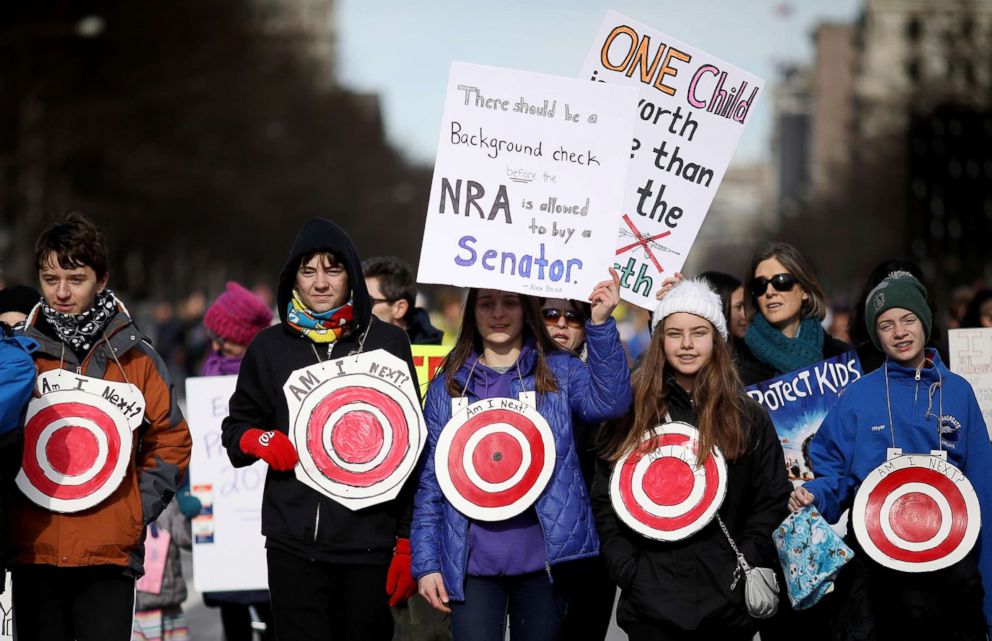
The ostensible goal is to press for new gun-safety measures, in the wake of last month’s horrific shooting at Marjory Stoneman Douglas High School, in Parkland, Fla. But with realistic hopes for significant action by Congress already dashed, the march has morphed into something larger than that – and potentially more significant.
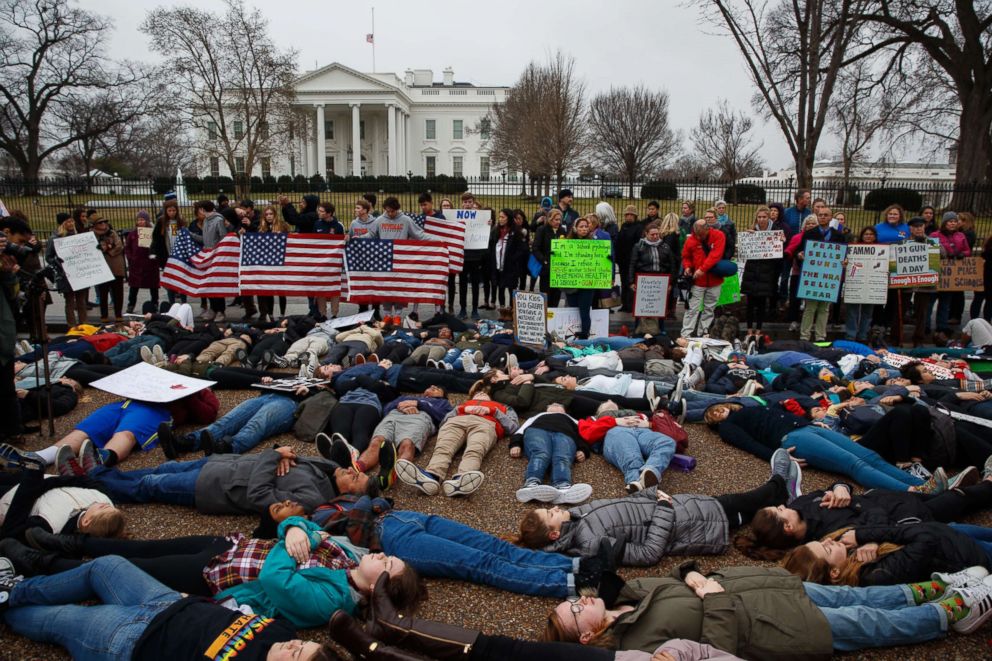
“They are in it to change the face of politics, and they know that they’ve got the power and the leverage to do it,” Rep. Ro Khanna, D-Calif., a 41-year-old freshman House member who represents Silicon Valley, told ABC News.
“They’ve been touched by this sense of history, a sense of patriotism – that this is their moment,” said Khanna, who has hosted events with Parkland survivors in recent weeks and has helped draw attention to the march via social media. “Their sense that they’re in charge – that they are leading.”
The march developed out of the political activism that sprang from Parkland. The tragedy showcased a poised and passionate crop of students in Florida and well beyond, and drew celebrity endorsements and the kind of financial backing needed to pull off events of this magnitude.
March for Our Lives 2018

The passion is borne in part of being brought up during unique and tumultuous times. Most of this year’s high-school seniors were born in 2000, after the 1999 Columbine shooting changed notions of school safety forever.
They have no memory of a pre-9/11 age and were small children when wars raged that would wind up dividing the public.
They’ve lived roughly half their lives under the George W. Bush presidency and half under Barack Obama – leaders from different parties who came in with great hopes of uniting the country, only to see the nation’s divisions grow worse.
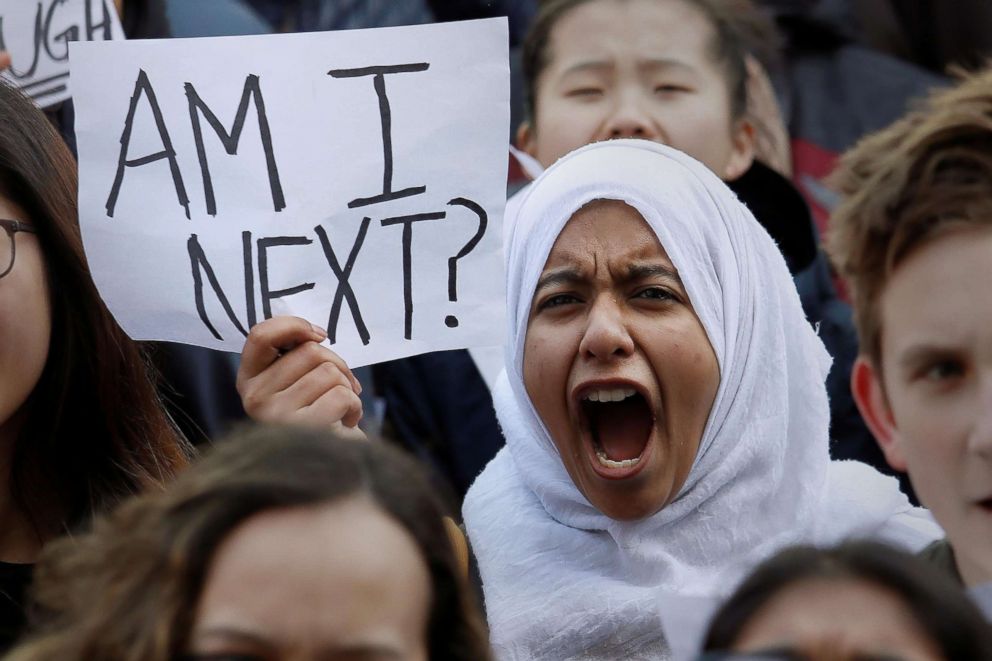
Then came another awful school tragedy a year into the tenure of President Donald Trump.
Dysfunction, disunity, and downright anger are defining characteristics of the only kind of politics most young people have ever known.
They also know how to stay connected, and many have carried powerful organizing tools in their pockets since middle school. Parkland put students with deep understandings of social media and civic engagement into nationally prominent conversations, including inside the White House itself.
As plans came together for a national march, it drew the interest of Oprah Winfrey and George Clooney, both of whom sent big checks to support organizing. Celebrities including Miley Cyrus, Lin-Manuel Miranda, Amy Schumer, and Yara Shahidi made plans to attend and perform.
A commitment has already emerged not to let this weekend be the end of the action.
“This is more than a one- or two-time action with the walk-out and the march,” said Madison Thomas, a Georgetown University junior who is one of the organizers for Youth EMPOWER, a civic group that grew out of last year’s Women’s March on Washington. “People are really engaged with this issue, and will stay engaged with this issue until the midterm elections.”
For all the excitement generated by this moment, there’s a good chance it means nothing when it comes to moving legislation in the immediate future.
Other moments that held the promise of engaging a younger generation for life have gone bust; 18-to-29-year-olds consistently lag their older siblings, parents, and grandparents when it comes to voter participation.
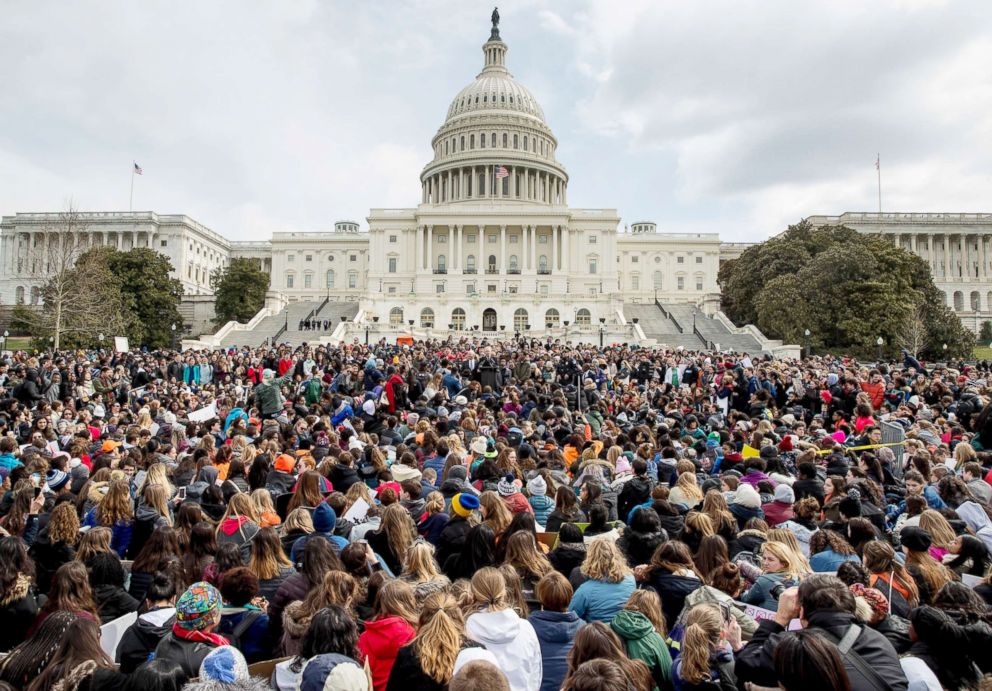
The march comes in the immediate wake of further disappointment.
Congress this week is wrapping up work on a massive spending bill that includes only a few modest fixes to the national gun-buying background-check system – essentially closing the door on major congressional movement on guns this year.
But Thomas said that won’t deter participants. Much like the Women’s March shaped the national dialogue early the Trump presidency, young people are now looking to do the same.
“There was no specific piece of legislation that was passed specifically because of the Women’s March, and I don’t know if the same will be true with the March for Our Lives,” she said. “But it is about more than that. It is about changing the culture and changing the conversation.”
Rep. Khanna said what sets this moment apart is that young people aren’t merely being asked to mobilize on behalf of an older generation of candidates.
“In the past, the message has always been, ‘We want you to get involved, we want you to vote, we want you to knock on doors, we want you to volunteer,” he said. “Now, it’s very different. The students are saying, ‘No, we’re in charge. You guys have messed up.’ ”
